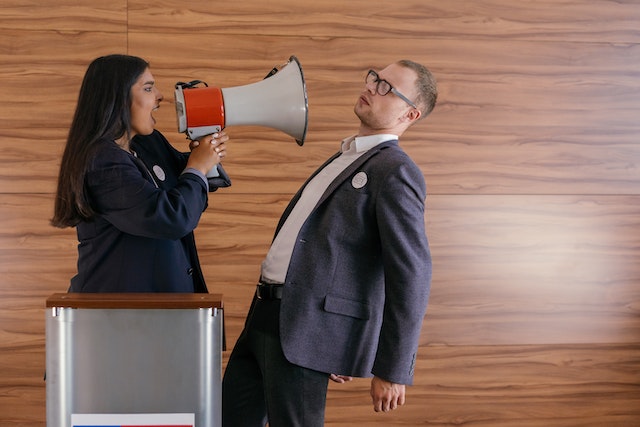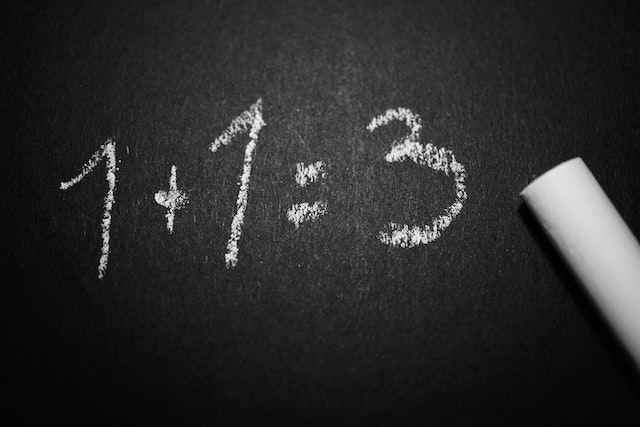Written by: Olivera Tolimir
Have you ever been hurt by false friends?
At first, they seem like good news. You’re thrilled to have encountered them. “I’m so lucky! They’re so nice. Friends like these will make my life better and easier”, you think for yourself.
And then, bam!
They disappoint and embarrass you when you need them the most!
So, you wonder how you could be so naive.
Even worse, just when you’ve recovered from the previous pain, it happens again.
Huh?
What do you mean, “How is this related to learning Serbian?”
Ooooh. Sorry!
We haven’t mentioned the crucial part! Although fake people can cause the same feelings, we’re talking about words!
So, false friends are pairs of words from two languages that sound very similar but have different meanings.
There are two ways false friends can cause you problems:
- by making it tricky to remember the correct meaning because of the similar word in your language (better option);
- by making you not want to leave the house for the next three days because you accidentally said something inappropriate or obscene (worse option).
Don’t worry. Even if you somehow experience the second option, most native speakers will laugh it out and explain the mistake. It’ll be a fun anecdote that will help you while learning Serbian.
But just in case, here’s a list of 9 English-Serbian false friends. It’s always better to prepare yourself!
Learning Serbian False Friends 1: Athletics : Atletika
Since the English word athletics and Serbian atletika don’t have the same meaning, it can be confusing for an English and Serbian speaker to talk about sports.
While both words are used in the context of sports, the Serbian atletika doesn’t mean sport in general.
We use this word when referring to track and field.
Do you agree with the saying, Atletika je kraljica sportova (Track and field is the queen of sports)?

Learning Serbian False Friends 2: Fabric: Fabrika
You might get confused if you ask your Serbian friend where he works, and he replies, U onoj fabrici.
Of course, he doesn’t work in cloth. In Serbian, fabrika means factory. So, your friend’s answer means, In that factory.
Learning Serbian False Friends 3: Paradise : Paradajz
The Serbian word paradajz is pronounced very similar to the English synonym for heaven. The accent is different, though.
When we like a place a lot, we tend to say, Ovo je raj na Zemlji! It means This is a paradise on Earth!
But if you visit Serbia and your friends ask you what you think about our country, try not to say, Ovo je paradajz na Zemlji!
Your friends will probably start looking around their feet because you just said, This is a tomato on the Earth/ground.

Learning Serbian False Friends 4: Billion : Bilion
Oof. This one can be tricky if you collaborate with a Serbian company.
If you’re uncareful, it can even result in a lawsuit or, at least, the end of the cooperation.
So, bilion represents a number in Serbian, too. But it doesn’t mean a billion. It means trillion.
If you want to say billion in Serbian, use the word milijarda.
Let’s sum it up, just in case:
- 1 000 000 000 (English: billion; Serbian: milijarda);
- 1 000 000 000 000 (English: trillion; Serbian: bilion).
Learning Serbian False Friends 5: Chef : Šef
The words chef and šef are pronounced the same.
Although they both represent a person in charge, their meanings significantly differ.
While the English chef is the main cook, Serbian šef is the boss.
So, don’t be surprised if your Serbian cousin who works as an IT engineer starts talking about their šef. They (most likely) haven’t changed their profession! (Although it isn’t impossible!)
Learning Serbian False Friends 6: Cabin : Kabina
You may plan to go to a cabin in the woods with your significant other for a weekend.
It sounds great in English, but if you ask a Serbian girl to join you u kabini, you might get a slap.
In Serbian, kabina is a changing room. So… You get the point.
Instead, you can mention your plan that includes koliba. It’s a cabin in Serbian.
Learning Serbian False Friends 7: Argument : Argument

While the word argument can have the same meaning in Serbian and in English, this word has more meanings in the English language than in Serbian.
If you want to explain to your friends why you’re so sad and try to say it’s because you argued with your significant other, don’t use the same word in Serbian.
In Serbian, this word only means a set of reasons we use to convince someone we’re right. We don’t use it to mark a fight.
In this context, we use the word svađa.
Learning Serbian False Friends 8: Eventually : Eventualno
If you invite someone to a party and they say, Eventualno ću doći kad završim s obavezama, don’t be upset if they don’t show up.
They didn’t tell you they’d eventually come when they’re done with their duties. They said they’ll maybe come when they’re done. But even then, we mostly use this word when we want to emphasize how busy we are, and how we probably won’t have time. But still, there’s a slight possibility for that to change.
Learning Serbian False Friends 9: Gymnasium : Gimnazija
Did you go to the gym when you were a teenager?
Many Serbians did. And not because they lifted.
Gimnazija is a type of high school in Serbia (and most of Europe). High schools in Serbia last three or four years.

You can go to high school for three years if you choose a profession where the focus is on practical skills, such as hairdresser, waiter, cook, mechanic, or electrician. After graduation, you can’t enroll in college.
Then, there are high schools where you learn a specific set of skills but you also get enough theoretical knowledge for college if you want to. The focus can be on the economy, medicine, chemistry, or technical knowledge. For example, when a person graduates from a medical high school, they become a qualified nurse. To become a doctor, they go to college for six more years.
The third type of school is gimnazija. It’s a high school for students who want to gain more general knowledge and then go to college. In these schools, there are subjects such as math, chemistry, physics, geography, biology, history, Serbian, Latin, English, and one more foreign language.
And if you want to talk about your workout routine in a gym, remember gym is teretana in Serbian!
If you’d like to learn more tricks to avoid classic pitfalls while learning Serbian, check out our online individual Serbian classes!



